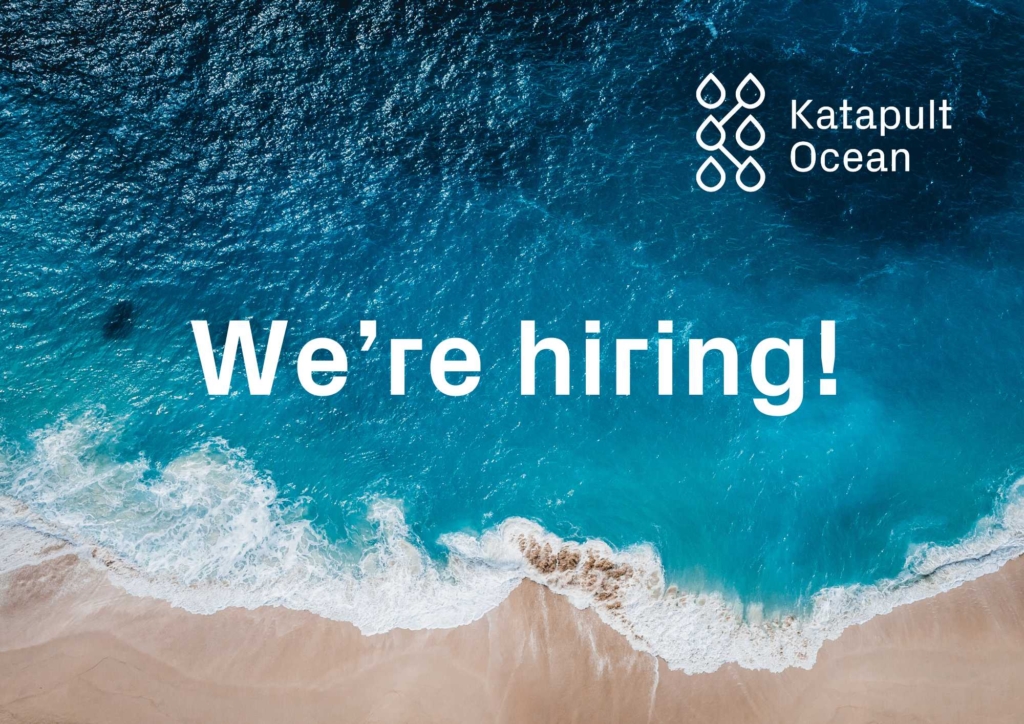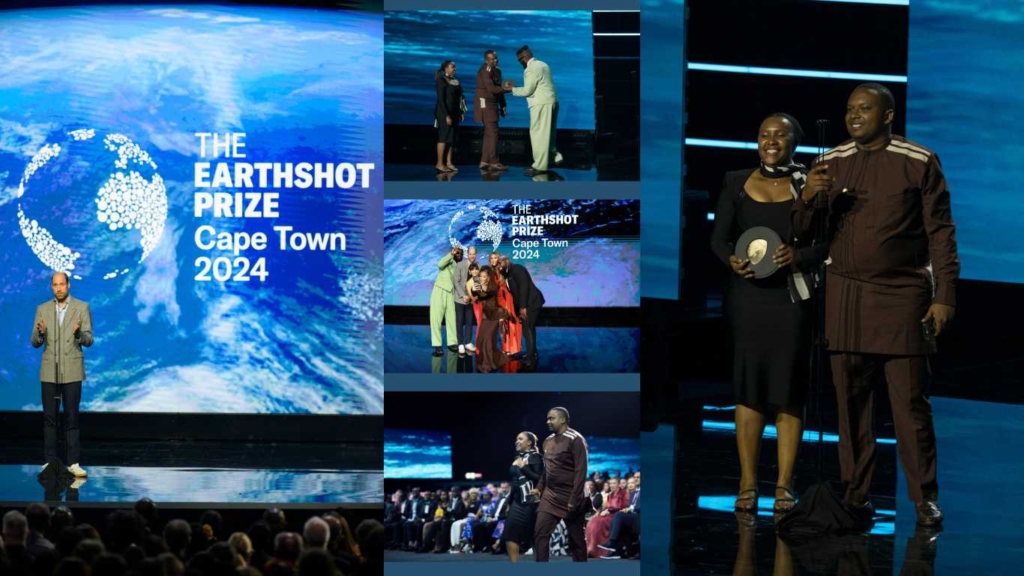Into 2023: Emerging trends across Ocean, Climate and Africa

As we step into 2023, there couldn’t be a better time to assess some of the trends, challenges and changes within the investment fields of Climate-, Ocean- and Agri-tech. Simultaneously there are few people better positioned to help you take a peek into the future than Katapult’s Investment team. During 2022, they screened upwards of 2000 high-impact companies, providing them with a unique glimpse into some of the macro-trends that look set to shape the coming year.
From the rise of hardware to a continued dominance of ocean organics to a growing African ecosystem, Carl, Anthony and Yann will guide you through some of their observations and predictions for 2023.
Climate
“Hardware is hard” is an old adage in venture capital and from our experience especially true for climate tech startups attempting to fundraise. When Katapult began seed-stage impact investing back in 2017, our first fund consisted primarily of classic ‘B2B SaaS’ startups such as Chooose. This model has been successful for Katapult over the years with two such investments reaching unicorn status in 2022, Betterfly and ESUSU.
However we foresee a significant (and overdue) shift in this thinking from climate tech investors in the years ahead. Climate change is a real and, unfortunately, very tangible crisis. As such there is an urgent need for not just software but also physical hardware solutions to help close the gap to net zero. Later stage capital is searching for the next hardware innovations across various domains, especially Clean Energy, Circular Economies, Carbon Capture, Transport and Natural Assets.
Therefore Katapult is proud to have shifted focus in the last few years to both software and hardware solutions. Most recently in 2022, where 84% of our latest global Climate & Ocean seed investments consisted of hardware-based solutions.
Across both software and hardware, we are excited to see and invest in exciting emerging technologies addressing the climate crisis. Examples include: net carbon negative waste-to-energy technology, an enhanced rock weathering platform for carbon capture, novel recyclable printed circuit boards and proprietary AI to develop new net zero materials such as permanent magnets used in wind turbines.
Carl Strøm Walton, Investment Manager Katapult Climate
Ocean
Within the confines of our own dealflow pipeline, there were a number of interesting trends we picked up on in 2022 that we will be monitoring closely and investigating further in the new year.
Firstly, the market still appears to be dominated with what we call “Ocean Organics,” or rather, businesses growing functional organic material in the ocean or onshore in water-based systems, that can be regeneratively harvested and used in a variety of applications including plant-based foods, nutraceuticals, pharmaceuticals, and agriculture, among many others.
Under this umbrella of Ocean Organics, seaweed continues to dominate, entering now into what we believe is a growth stage where established suppliers will begin to scale up production and increasingly commoditize various types of seaweed as younger downstream players begin demanding higher quantities to use in the technologies they are developing to bring seaweed-based products into mainstream markets. This was reflected in our past year’s pipeline, as nearly 12% of the companies we saw dealt with either the growth or productization of seaweed in some form, which was the second largest segment of any subsector we tracked within our dealflow.
Blue Foods as well within the Ocean Organics segment, while only making up about 5% of our dealflow in 2022, is an industry we are watching with increased interest, as the technologies to develop cell-based fish continue to mature and sustainable mariculture operations look to expand to close the multi-billion dollar supply gap set to exist in the fish and shellfish industries by 2030.
Secondly, and not to be outdone, a subsector we call “Aquaculture Management” – more specifically, the technologies aquaculture companies are increasingly deploying to improve the sustainability of their operations – is a burgeoning industry that continues to swell as global demand for fish explodes and wild-catch resources diminish against the backdrop of marine population decline and punitive government regulations to combat overfishing. This subsector of aquaculture made up nearly 15% of the companies we saw in our pipeline in 2022, the largest of any segment, with technologies ranging from sensors to track things such as water temperature, quality, turbidity, and pH, automated feeding systems, and systems to combat waterborne pests without the use of antibiotics.
Moreover, despite resource costs still being somewhat prohibitive and certainly from an impact perspective, imperfect, onshore aquaculture continues to proliferate and we have seen many companies building sustainable circular systems to grow seaweed, mollusks, and even larger finfish on land. Such technologies will be critical as the world increasingly relies on aquaculture to meet global demand for protein, and though Katapult itself will not directly invest in finfish aquaculture, we believe there will continue to be opportunities for investment in supporting technologies within this space that will serve to improve both the viability and sustainability of the sector overall, as well as promote animal welfare and ocean health, both on and offshore.
Thirdly, in a bucket we call “Ocean Energy Systems,” we have seen a handful of very promising trends, specifically pertaining to marine propulsion and offshore energy.
Within the former, we are seeing a continued march towards a fully-green future, with 100% electrically-powered vessels already available and rapidly expanding their market share as prices decline and the grid adapts with fast-charging stations, as well as hydrogen-powered vessels, which offer better power and range than their electric counterparts, beginning to be developed alongside the green production of hydrogen and the development of infrastructure systems that will readily deliver this fuel to customers.
Within the latter, continuous innovation in floating structures and mooring systems, combined with declining production costs, are making ocean power generation from both floating wind and solar far more viable, creating both an opportunity to invest in full-scale power generation companies and ocean power parks, as well as a picks & shovels scenario where earlier-stage companies will seek to develop technologies to continue to improve the power output and durability of these floating offshore structures. Moreover, we are increasingly excited by the prospect of wave energy, as startups in this space make further strides towards systems that can capture wave power reliably, consistently, and at a cost that gets them closer towards other offshore energy sources. While this space is still nascent, we strongly believe there will be a handful of companies in the next 10 years who will make wave energy capture a realistic endeavor, unlocking a virtually untapped resource to power our green future.
Last but not least, though this is something we’d likely call more of an observation than a trend, it was interesting to us that out of the 1000+ companies we reviewed globally in 2022, despite only 7% of those companies coming from Oceania, 20% of the companies we ultimately invested in were based in this region, indicating a strong cohort of potentially overlooked startups coming out of that geography, which obviously has the ocean as an integral part of its economy. This is certainly something we will continue to pay close attention to in 2023 and beyond.
Anthony Bellafiore, Investment Manager Katapult Ocean
Africa
What a year it has been for the African venture ecosystem! Africa has been the only continent to deliver positive year-on-year growth in startup funding, showing outstanding resilience and continued opportunity in an economic environment that has brought the world to its knees.
With favorable factors ranging from ever-growing young tech-savvy populations, to tremendous systemic challenges requiring transformative solutions, to increasingly supportive regulatory environments, the region offers a compelling opportunity for purpose-driven startups and investors. Given that it only accounts for ~1% of global venture funding, we anticipate massive growth for the impact venture industry in the coming years as the imperative of realizing this opportunity materializes.
This becomes particularly apparent when we consider the threefold increase in venture funding over the last two years, proving that entrepreneurs and investors alike have taken note of these tailwinds. We are particularly excited that the maturing ecosystem now possesses the fundamentals to sustain Katapult’s investment theme from pipeline to exit.
Looking at trends specific to our pipeline, it has been inspiring (and comforting) to witness the depth of opportunity, innovation, and the potential of agri, food, and climate tech industries – on which we are focusing. Indeed, Katapult has screened 1000+ of startups leveraging technology to address supply chain inefficiencies, improve climate resilience, develop data or financial empowerment tools, and implement sustainable solutions for stakeholders throughout the value chain.
From smallholder farmer marketplaces to financial and healthcare inclusion, via insect protein and regenerative desert farming, the 16 diverse and inspirational teams that we have invested in and accelerated in 2022 are working to solve some of the world’s most pressing challenges.
Knowing that African food systems, infrastructures, and populations will be hardest hit by climate disruptions, technology and innovation are set to take center stage in the search for effective and impactful adaptation and mitigation solutions on the continent.
Yann Vaudin, Investment Analyst Katapult Africa
Want to receive updates on trends and opportunities within the impact space throughout the year? Sign up to our newsletter, Impact Investment Digest.

